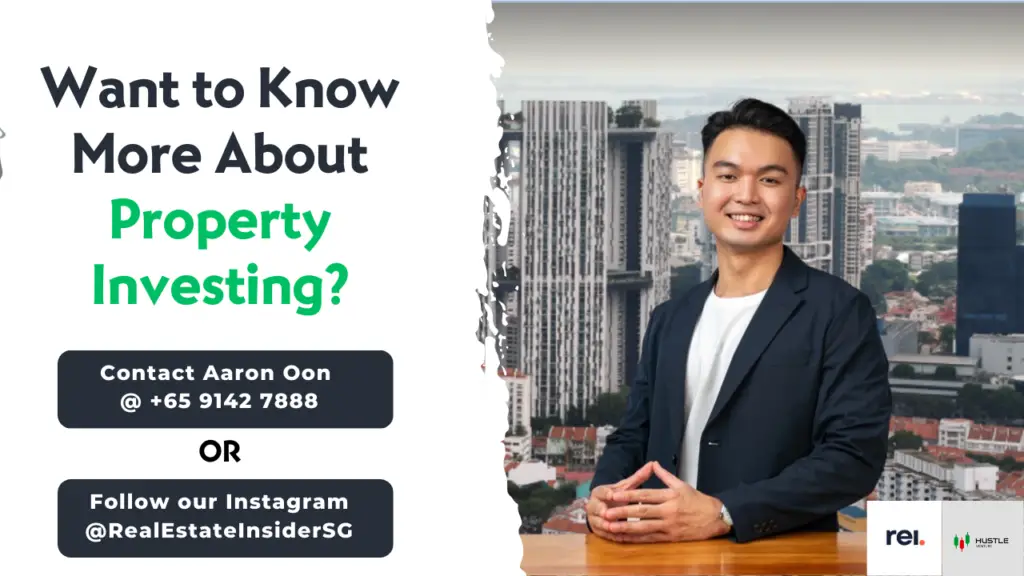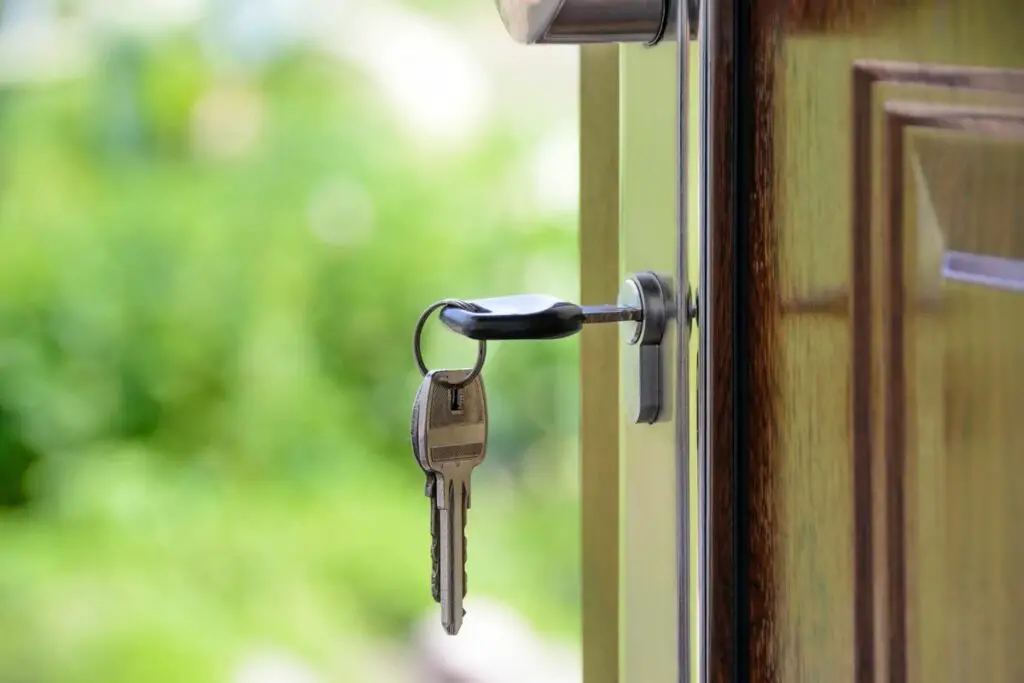Finding the perfect HDB flat to rent in Singapore can be a straightforward process, provided that potential tenants understand the eligibility requirements, financial considerations, and legal nuances involved.
Here are the essential steps, from understanding the regulations to securing necessary approvals, and from exploring financial support schemes to considering the implications of renting out a room in your flat.
Key Takeaways
- Prospective HDB tenants must be Singapore citizens, PRs, or hold a valid pass, and can only rent 3-room flats or larger after obtaining HDB’s approval.
- The Parenthood Provisional Housing Scheme (PPHS) offers subsidized rental rates for eligible married couples, prioritizing those with children or expecting.
- PPHS rental rates are significantly lower than open market rates, with a stark contrast in price for similar HDB flat types.
- Legal and compliance steps include securing approval from HDB and informing the MCST, alongside understanding the rental market for informed decision-making.
- Budget 2024 introduces a one-year voucher for eligible couples waiting for BTO flats, providing financial support for open market rentals.
How To Rent A Flat From HDB

Criteria for Potential Tenants
When considering potential tenants for an HDB flat, landlords must ensure that candidates meet specific eligibility criteria.
| Criteria | Description |
|---|---|
| Citizenship | Must be a Singapore Citizen or Permanent Resident (PR). |
| Age | Must be at least 21 years old. |
| Family Nucleus | Must form a family nucleus as defined by HDB (e.g., married couple, parents with children, etc.). |
| Income | Must meet the income ceiling set by HDB for the specific flat type. |
| Ownership of Other Property | Should not own other residential properties locally or abroad. |
| Financial Standing | Should have a stable financial standing and ability to pay rent. |
| Criminal Record | Must not have any criminal record or pending legal issues. |
| Housing Grant Eligibility | Eligibility for any housing grants or schemes offered by HDB. |
| Household Status | Must not be under any other HDB flat application or ownership. |
| Citizenship of Family Members | All household members must be Singapore Citizens or PRs. |
It’s crucial to conduct a thorough pre-screening process, akin to a ‘vibe check’, to ensure compatibility and address any questions the tenants may have.
Additionally, potential tenants must not currently be tenants of public rental HDB flats or owners of other HDB flats, with certain exceptions such as being divorced or legally separated. Here is a summary of the key points to consider:
- Interview and pre-screen prospective tenants
- Verify age and citizenship status
- Confirm that they are not current public rental tenants or HDB flat owners
- Discuss options and conditions for tenancy renewal
- Establish clear procedures for handling disputes
By adhering to these guidelines, landlords can foster a transparent and agreeable rental arrangement.
Adherence to Occupancy Limits and Quotas
From January 2024 to December 2026, there’s a temporary relaxation of these rules, allowing up to eight unrelated individuals to reside in larger flats. This measure aims to accommodate the housing needs during this period.
Occupancy limits vary depending on the size of the flat. For instance, properties under 90sqm are capped at six unrelated individuals. Landlords need to stay informed about these regulations to ensure compliance and avoid penalties.
Here’s a quick reference for the current occupancy limits:
- 1- and 2-room flats: Up to 4 tenants
- 3-room flats and above Up to 6 tenants (temporarily increased to 8 until December 2026)
Remember, securing approval from HDB is a mandatory step before you can rent out your flat. This ensures that all parties are aware of and adhere to the set guidelines.
Rental Periods and Conditions
When renting a flat from HDB, it’s crucial to understand the minimum and maximum rental periods. These durations are designed to ensure stability for both tenants and landlords. The minimum rental period for each tenant is 6 months per application, which prevents the disruption that comes with frequent tenant turnover.
Conversely, owners can apply to rent out their flat or bedrooms for a maximum period of 3 years per application, allowing for longer-term planning.
Rental agreements should clearly outline all terms and conditions to avoid future disputes. This includes specifying the rental term with start and end dates, payment details, and responsibilities for maintenance and repairs. It’s also important to detail the conditions for renewal, early termination, and handling disputes.
Remember, renting out your flat or bedroom on a short-term basis is not permitted, and all tenants must adhere to the stipulated rental periods. Ensure that any non-citizen tenants have a valid pass with at least 6 months validity from the date of application.
Exploring the Parenthood Provisional Housing Scheme (PPHS)

The HDB Parenthood Provisional Housing Scheme (PPHS) offers a practical solution for married couples awaiting the completion of their Build-To-Order (BTO) flats. Established in 2013, the PPHS has been a supportive measure for families in transition, with about 2,000 flats currently managed under the scheme. HDB’s commitment to increase this number to 4,000 by 2025 underscores the scheme’s importance.
Eligibility for the PPHS is straightforward but crucial for applicants to understand. Couples with a monthly household income of up to S$7,000 can apply, and those with children or expecting a child are given priority. This prioritisation reflects the scheme’s focus on providing stability for families during a potentially stressful period of waiting for their permanent homes.
The PPHS not only facilitates housing needs but also contributes to the well-being of young families by offering a sense of security and continuity.
While the PPHS serves as a temporary housing solution, it is essential for applicants to consider the long-term implications of their housing choices. Comparing the PPHS to other options, such as resale flats, can help couples align their immediate needs with their future asset progression goals.
Income and Priority Considerations
When considering the Parenthood Provisional Housing Scheme (PPHS), income levels play a crucial role in determining eligibility. Eligible couples waiting for their Build-To-Order homes will receive financial support to rent flats from the open market, which can be a significant aid during the interim period before moving into their permanent home.
Priority schemes are in place to enhance chances in the computer ballot for flats, offering a fair opportunity for all applicants. The introduction of rental vouchers under Budget 2024 further supports couples by providing a government rental voucher to eligible families awaiting their BTO flats.
The Housing and Development Board (HDB) offers subsidised housing under the PPHS, with rentals for two-room flats ranging between S$400 and S$550. This initiative ensures affordability while addressing the immediate housing needs of families.
It’s important to weigh the financial considerations and preferences when choosing between BTO and resale HDB options, as each comes with unique advantages and challenges, including the new conditions for property ownership such as a 10-year MOP for prime and plus owners.
Comparing PPHS and Open Market Rental Rates
When considering the Parenthood Provisional Housing Scheme (PPHS) versus the open market for rental options, the cost difference is significant. PPHS offers a more affordable alternative to the open market, with rental rates for two-room flats ranging from S$400 to S$550, and three-room flats from S$600 to S$900. In contrast, the open market rates for similar three-room HDB flats can be substantially higher, often between S$2,500 and S$3,500.
The introduction of the PPHS (Open Market) Voucher as part of Budget 2024 aims to bridge this gap for couples awaiting the completion of their BTO flats. While the exact value of the voucher has not been disclosed, it is designed to alleviate the financial burden of renting in the open market, which has seen a consistent rise in rental costs over recent years.
The PPHS voucher will come in handy to offset the rental expenses.
The table below provides a quick comparison of PPHS and open market rental rates for HDB flats:
| Flat Type | PPHS Rental Rates (S$) | Open Market Rental Rates (S$) |
|---|---|---|
| 2-Room | 400 – 550 | N/A |
| 3-Room | 600 – 900 | 2,500 – 3,500 |
Securing Necessary Approvals and Compliance

Obtaining Approval from HDB
Before you can rent out your HDB flat or room, it is imperative to obtain approval from HDB. This process is initiated through the HDB website, where you must submit an application that includes details about your flat and the intended rental. HDB’s approval is not just a formality; it ensures that all rentals adhere to the strict guidelines set forth for public housing.
Once you have HDB’s nod, you must also inform the Management Corporation Strata Title (MCST) if your flat is part of an executive condominium. This step is crucial to ensure that your rental practices are in line with the estate’s by-laws and regulations.
Remember, the rental period granted by HDB is typically up to a maximum of 3 years for flats rented to Singaporeans or Malaysians. For other tenants, the period may vary, so it’s important to check the specific terms stated in your approval letter.
Here’s a quick checklist to guide you through the approval process:
- Verify your eligibility to rent out the flat or room.
- Prepare the necessary documentation, including details of the tenants.
- Submit your application via the HDB website.
- Await confirmation and receive your approval letter from HDB.
- Inform the MCST of your intention to rent out the room (for ECs).
Informing MCST and Ensuring Compliance
Once you have obtained approval from HDB to rent out your flat or room, the next crucial step is to inform the Management Corporation Strata Title (MCST). This is especially important for HDB flats that are part of a larger condominium complex with shared facilities. Ensuring compliance with the MCST’s regulations is essential for a smooth rental process.
For instance, the MCST may have specific rules regarding the use of common areas and facilities, which can impact the desirability of your property to potential tenants. Effective MCST management is crucial for maintaining these areas, which in turn helps in attracting and retaining tenants.
It is also important to be aware of any temporary relaxations or changes in regulations, such as the occupancy cap for rental units. For example, there may be provisions allowing for up to eight unrelated persons to be accommodated in a residential property, subject to conditions.
Lastly, don’t forget about the financial aspects such as the payment of rental stamp duty. This is a necessary step after signing a tenancy agreement and should not be overlooked. Compliance with all these aspects ensures that you are on the right side of the law and avoids potential disputes or penalties.
The Financial Aspects of Renting Out a Room

Potential Income from Renting Out a Room
Renting out a room in your HDB flat can be a practical way to generate additional income. The financial benefits of this arrangement can be significant, especially in light of the rising cost of living. Homeowners who choose to rent out a spare room can tap into a steady stream of passive income, which can be used to offset mortgage payments or other household expenses.
Here’s a quick overview of potential rental yields for a 3-room HDB flat in a popular location:
| Location | Purchase Price | Monthly Rent | Annual Income | Yield |
|---|---|---|---|---|
| Tampines | $430,000 | $2,800 | $33,600 | 7.8% |
It’s important to note that these figures are indicative and can vary based on factors such as the flat’s condition, exact location, and market demand. Before deciding to rent out a room, ensure that you meet the legal criteria and have obtained the necessary approvals from HDB.
While the idea of additional cash flow is enticing, it’s essential to consider the implications of sharing your living space. The decision to rent out a room should balance the potential income with your comfort and privacy needs.
Understanding the Market Rates and Demand
When considering renting out a room in your HDB flat, it’s crucial to understand the market rates and demand to set a competitive price that attracts tenants. Recent data indicates a range in rental prices for various HDB flat types. For instance, 4-room flats have seen prices between S$2,500 to S$4,300, while 5-room flats range from S$3,200 to S$4,500 per month.
Market conditions fluctuate, and staying informed about the latest trends is essential for landlords to adjust their rental rates accordingly.
Here’s a quick glance at the average rental rates for HDB flats:
| HDB Flat Type | Average Rental Rate (S$) |
|---|---|
| 4-room | 2,500 – 4,300 |
| 5-room | 3,200 – 4,500 |
These figures are influenced by several factors, including location, flat condition, and amenities. It’s also important to note that market trends can shift, potentially affecting these rates.
Budget 2024: Voucher Support for Couples Waiting for BTO Flats
In a move to alleviate the interim housing challenges faced by couples awaiting the completion of their Build-To-Order (BTO) flats, the government has introduced a one-year voucher system. This initiative, part of Budget 2024, aims to provide financial support to eligible families, enabling them to rent flats in the open market.
The voucher’s introduction is a response to the needs of families, particularly those with young children, who require temporary accommodation while their permanent homes are being built.
While the exact value of the voucher has not been disclosed, its implementation is expected to see high usage. However, property analysts have raised concerns that this could inadvertently lead to an increase in rental prices for resale flats.
Eligibility for the voucher extends to couples who have already booked their BTO flats but are seeking a place to stay during the construction period. This policy underscores the government’s commitment to supporting families in transition and addresses the immediate housing needs of the community.
Legal Requirements and Restrictions for Room Rentals

Legal Criteria for Renting Out Rooms
When considering renting out a room in your HDB flat, it’s essential to understand the legal criteria set by the Housing & Development Board (HDB). Flat owners of 3-room or larger HDB flats can rent out their spare bedroom(s), but must first obtain approval from HDB. Eligibility conditions apply, ensuring that the process is regulated and adheres to the community’s standards.
The minimum rental period is set at 3 months, and for properties under 90sqm, there is a maximum occupancy limit of 6 unrelated individuals. It’s crucial to inform the Management Corporation Strata Title (MCST) of your intentions to ensure that you comply with the additional regulations that may apply to your property.
- Obtain approval from HDB through their official website.
- Inform MCST about your rental plans.
Remember, co-living spaces offer shared living facilities and can be a source of stable rental income. However, before investing in such a property, consider factors like location, property type, and budget to make an informed decision.
Navigating the Rental Listing Process
Once you’ve decided to rent out your HDB flat or room, the next step is to effectively navigate the rental listing process. Creating a comprehensive and attractive listing is crucial to finding the right tenant. Start by gathering all necessary information about your property, including details such as location, size, amenities, and asking rent.
To ensure a smooth process, consider the following checklist:
- Description of the property, highlighting unique features
- Rental terms, including duration and any house rules
- Financial details like rent, security deposit, and maintenance costs
- Contact information for viewings and inquiries
Remember to pre-screen potential tenants to assess their suitability. This involves verifying their ability to pay rent and understanding their rental history. An agent can be invaluable in this process, handling everything from tenant sourcing to drafting a well-written tenancy agreement.
It’s essential to be transparent and accurate in your listing to attract tenants who are a good match for your property.
Weighing the Benefits Against Potential Discomforts
When considering renting out a room in your HDB flat, it’s essential to balance the prospective financial gains with the personal implications of sharing your home. The additional income can be significant, especially in a high-demand market, but it comes with the responsibility of cohabitation. Here are some key considerations:
- Tenant Compatibility: Ensuring a good match between landlord and tenant can prevent future conflicts.
- Privacy Concerns: Sharing common areas means less personal space and time alone.
- House Rules: Establishing clear guidelines on cleanliness, guests, and noise levels is crucial.
It’s not just about the extra income; it’s about finding the right balance that allows for a comfortable living environment for both parties involved.
Remember, a tenant’s presence will affect your daily routine and privacy. It’s important to conduct thorough pre-screening and interviews to gauge compatibility. Regular check-ins can help maintain a harmonious living situation, but be prepared for the potential discomforts that come with sharing your space.
Looking to rent an HDB?
Whether you are a married couple waiting for a BTO flat, a landlord looking to rent out a room, or someone seeking a temporary home, the process requires careful planning and compliance with HDB’s rules.
With the right approach and knowledge, renting an HDB flat can be a practical solution for housing needs, offering both affordability and the opportunity to live in well-maintained communities. It’s essential to stay informed about the latest policies, such as the PPHS voucher, and to utilize the resources available on HDB’s website to ensure a smooth rental experience.
Aaron Oon is a Senior Associate Director at Propnex and Founder of Real Estate Insider. A consistent Top Producer in the competitive world of real estate, Armed with a Finance degree from NUS, Aaron is more than just a real estate agent; he’s a strategic thinker and a creative problem solver.
If you are looking to invest in a property here in Singapore or would like to know more about Singapore’s property market. Be sure to reach out through the Calendy video link below:

Frequently Asked Questions
What are the eligibility criteria for renting an HDB flat?
To rent an HDB flat, you must be a Singapore citizen, a Permanent Resident, or on a valid pass with at least 6 months validity. The rental is only applicable for 3-room flats and above. Before renting out, you must obtain approval from HDB.
What are the occupancy limits and quotas for renting HDB flats?
HDB imposes conditions on the maximum number of occupants, which is 6 unrelated individuals for properties under 90sqm. There is also a Non-Citizen Quota for the neighborhood and block level to maintain a balanced mix of Singapore Citizens, Permanent Residents, and foreigners.
What is the minimum and maximum rental period for an HDB flat?
The minimum rental period for an HDB flat is 6 months, and the maximum rental period is 36 months.
What is the Parenthood Provisional Housing Scheme (PPHS) and who is eligible?
The PPHS is a scheme that allows married couples waiting for their BTO flats to rent a subsidized HDB flat. To be eligible, couples must have a monthly household income of up to S$7,000 and priority is given to those expecting or with children.
How do PPHS rental rates compare to open market rental rates?
PPHS rental rates are significantly lower than open market rates. For example, rentals for two-room flats under PPHS are around S$400 to $550, while three-room flats range from S$600 to S$900. In contrast, three-room HDB flats on the open market can cost between S$2,500 and S$3,500 to rent.
What financial support is available for couples waiting for BTO flats?
The Government offers a one-year PPHS voucher for eligible families to rent an HDB flat in the open market. This support is especially aimed at couples with young children who need temporary housing while waiting for the completion of their BTO flats.





